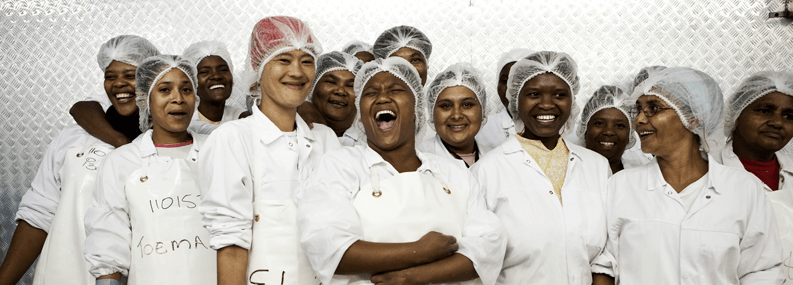Our oceans are vital: they supply protein, livelihoods and even every second breath of air we take. But our oceans are under increasing pressure.
In 1997 after the Newfoundland cod stocks collapsed, the Marine Stewardship Council was established with a mission to safeguard fish stocks for future generations.
Clearly, the challenges of overfishing have not gone away even though supplies of wild capture fish and seafood have plateaued at around 90m tonnes over the past five years [1]. Some 29% of our seas are overfished [2] and if anything, the challenge will intensify as the global population rises to 9.6 billion by 2050, and with it the demand for protein to feed the world.
MSC partners’ work is making a difference
Despite these challenges, we are beginning to see clear evidence that the MSC standard is making a difference thanks to the hard work of our partners who engage with the program, whether it’s a fishing fleet on the high seas or the retailers and restaurants on our high street.
It is this momentum, through the leadership of our partners, that drives real and lasting change in the way our oceans are fished, rewarding good practice and catalysing improvements where needed to meet the growing global demand for certified sustainable seafood choices.
The growing sustainable seafood market
The Global Impacts Report 2014 and Annual Report 2013-2014 released this month show there are many reasons to be optimistic about the future of the world’s oceans.
There are now more than 300 fisheries in 34 countries engaged with the MSC program. These fisheries represent 10% of the world’s wild capture fisheries, and 2,500 Chain of Custody certificates held by 66 businesses around the world.
Demand for sustainable seafood is growing with 23,000 ecolabelled products available in stores and restaurants in around 100 countries. The market for MSC-certified sustainable seafood is now worth $4.8bn annually.
As the business case for MSC grows, the credibility of our program continues to be firmly rooted in our science-based standard for seafood sustainability.
Hundreds of improvements and more to come
Thanks to the work of our monitoring and evaluation team we are able to capture and analyse the impacts of certification. In our second Global Impacts Report we have been able to identify 575 improvements in 125 fisheries all over the world. We anticipate this rising to a total of 1,224 improvements by 2020.
For example, there have been 20 fish stock status improvements achieved over the past two years, with the western stock in New Zealand’s hoki fishery now considered to be fully rebuilt. There have also been nine improvements delivered in bycatch reduction, including a 99% decrease in albatross bycatch in the South African hake fishery.
Great achievements such as these could not be made without the pioneering efforts of fisheries and the support of governments, NGOs, scientists and commercial partners. Recognition of these efforts is increasing as more consumers become aware of the blue ecolabel.
We’ve come a long way, but there’s always further to go on the journey towards sustainability. Future success depends on partnerships and collaboration to carefully calibrate the delicate balance between the environment and economy.
1, 2 FAO State of World Fisheries and Aquaculture Report 2014 (PDF)

